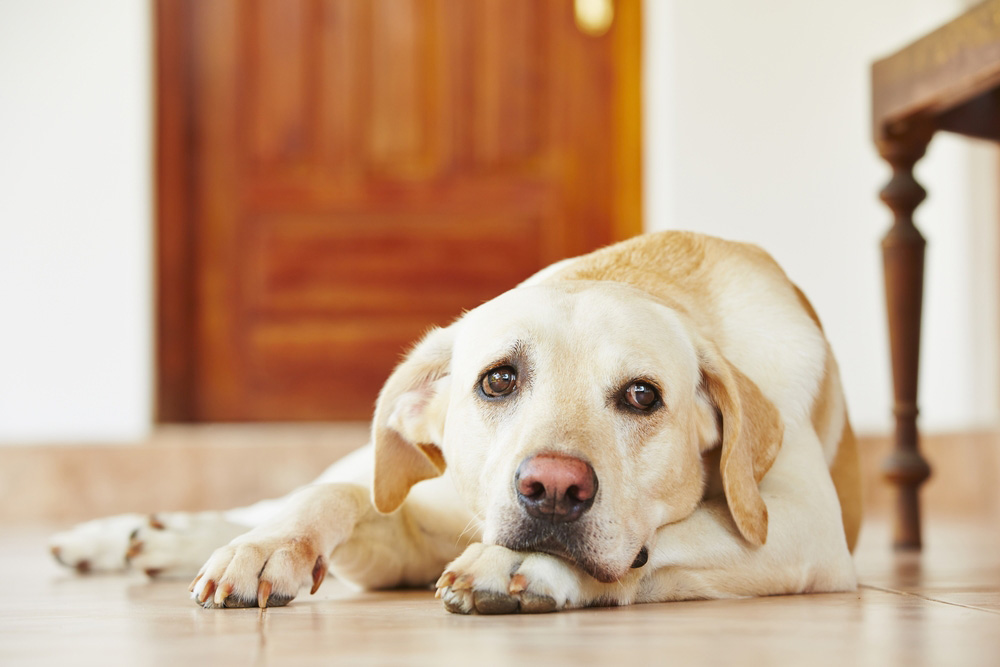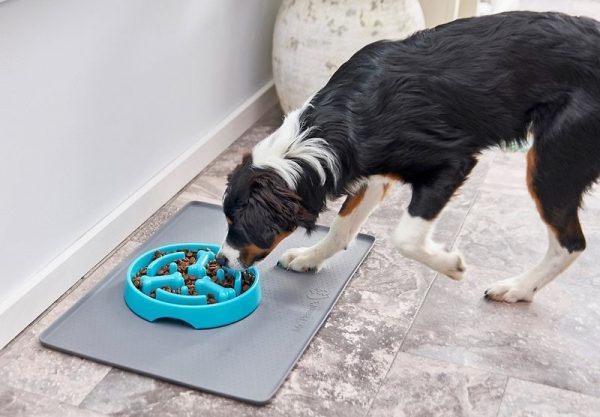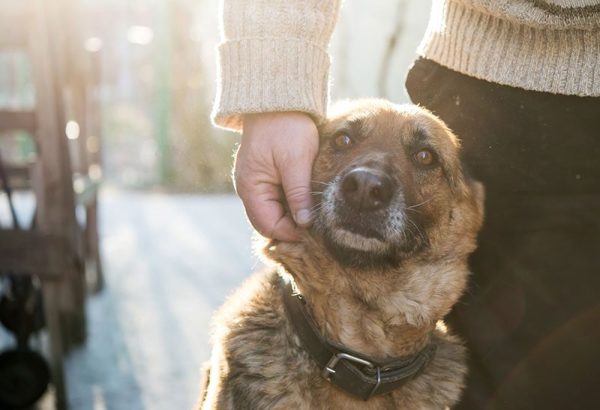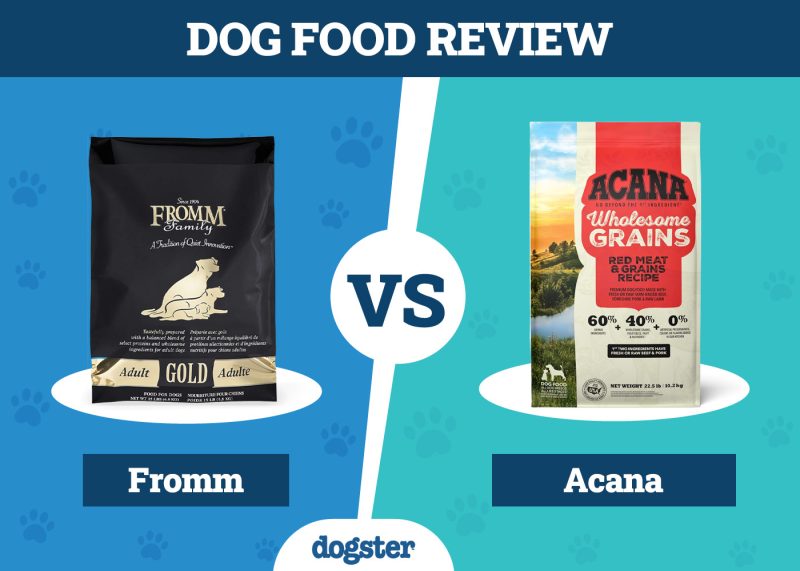In this article
View 5 More +Almost all dog owners have encountered diarrhea at some point in their dog’s life. A variety of causes can lead to diarrhea in puppies and dogs. Luckily, most cases are mild and self-limiting and will often resolve on their own.
It is still vital for owners to be aware that some cases of diarrhea in dogs can have a very serious underlying cause and require veterinary attention. Read on to learn everything you need to know about diarrhea in dogs.

What Is Dog Diarrhea?
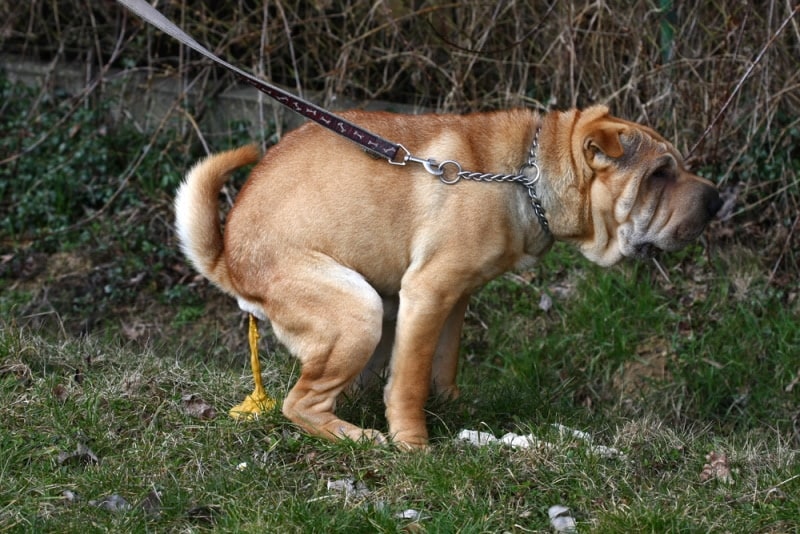
Diarrhea is the passage of loose, watery feces at a higher frequency than usual for your dog. Usually, large amounts of loose or unformed stools are passed at once. Diarrhea is not a disease in itself; it is a clinical sign of several diseases.
It can be a stressful and messy situation for owners and dogs. Some cases are mild and do not cause any long-term issues, but others are signs of serious underlying health issues that need to be addressed. The type of diarrhea associated with minor conditions is often resolved in a short space of time with little intervention required from your vet.
Diarrhea associated with serious underlying health issues may require intensive treatment and supportive care; some cases may even result in death if left untreated.
- Acute diarrhea is more commonly seen and is often a short-term issue. It is often caused by infections or dietary indiscretion.
- Chronic diarrhea is a persistent issue that lasts for weeks or more. This can be caused by more severe issues such as inflammatory bowel disease, food allergies, or cancer.
What Are the Signs of Dog Diarrhea?
Diarrhea is easy to spot in most dogs, as they often have little control over what they are passing.
- Lose consistency: Owners will notice their dog passing stools that are runnier than usual and lacking their usual firm shape.
- Increased frequency: Owners will report that their dog passes feces more often than usual. They may be going several times in the space of an hour.
- Increased volume of feces: Often, owners will report a large increase in the volume of feces passed.
- Blood or mucus present: In many cases, your dog’s diarrhea may contain blood or mucous. There may be bright red blood, streaks of blood, or dark, red-tinged blood. This can indicate more serious underlying health issues and requires immediate veterinary assistance.
- Straining while passing feces: Dogs may display straining or discomfort when trying to defecate.
- Reduced appetite: Your dog may not be as interested in their food as usual.
- Vomiting: Often, vomiting and diarrhea are seen together if there are gastrointestinal issues present.
- Dehydration: Diarrhea can often lead to dehydration if your dog loses more fluids than they are taking in. This is even more likely in very young puppies and elderly dogs.
- Lethargy/depression: Dogs with diarrhea can have a systemic issue that causes them to have reduced energy and move around less.


What Are the Causes of Dog Diarrhea?
Diarrhea occurs due to the gastrointestinal tract not functioning as it should. There are many causes of diarrhea. The most common ones are listed below:
1. Food Allergies
Dogs can react to specific components in their food and have an allergic reaction. Often, they will experience diarrhea and itchy skin in conjunction with each other.
2. Abrupt Changes in Diet
If you suddenly change your dog’s diet, it can cause an upset stomach, which may result in diarrhea.
3. Dietary Indiscretion
If your dog has eaten something they shouldn’t have, such as table scraps of fatty, greasy food or a new food type, it can cause diarrhea.
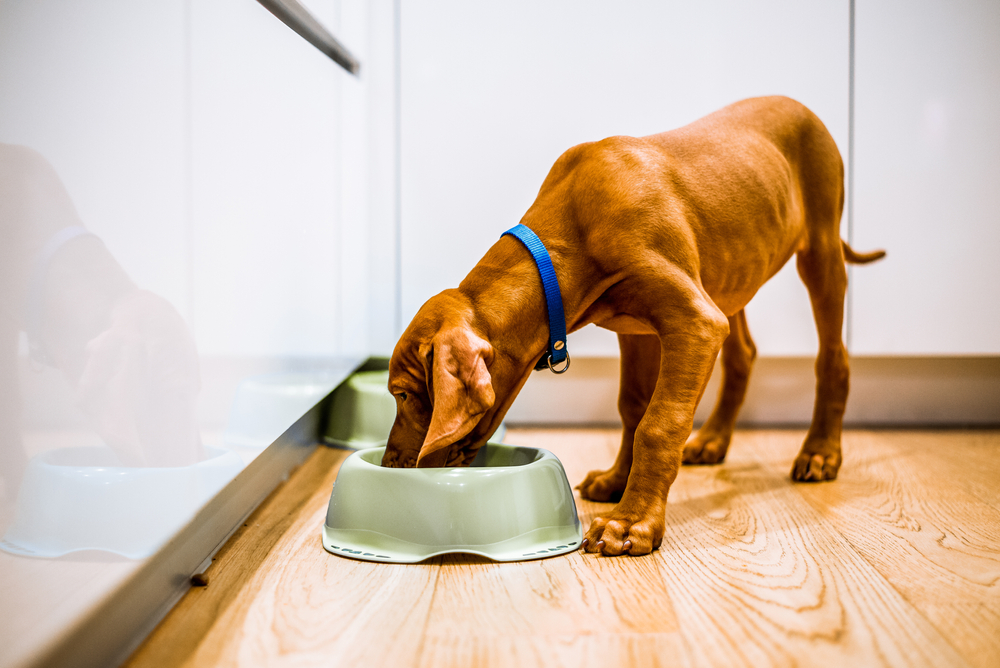
4. Parasites
Gastrointestinal parasites such as worms or protozoan parasites such as giardia can cause diarrhea. Coccidia can cause watery diarrhea, especially in puppies.
5. Infections
Many infections can cause diarrhea. Parvovirus often affects puppies and causes severe diarrhea and vomiting with blood present. Distemper virus and coronavirus also cause diarrhea. Bacterial infections such as E. coli, Campylobacter, and Salmonella typically cause bloody diarrhea, too.
6. Colitis
This occurs when parts of the large intestine become inflamed, and absorption issues develop, amongst other issues. This results in diarrhea.
7. Hemorrhagic gastroenteritis (HGE)
This is a condition that results in diarrhea and vomiting with large amounts of blood in.

8. Foreign Body
Dogs can sometimes eat foreign materials they aren’t supposed to. The body cannot digest them, and they become lodged somewhere along the gastrointestinal tract and cause a blockage. Your dog will be in a considerable amount of pain. This is a medical emergency and requires immediate veterinary attention.
9. Inflammatory Bowel Disease (IBD)
This is a disease that causes chronic inflammatory changes in the intestines, which results in long-term issues with diarrhea.
10. Pancreas Disease
The pancreas is an organ that helps your dog digest food. Inflammation of the pancreas (pancreatitis) can cause vomiting and diarrhea. It can be a very painful condition.
Exocrine pancreatic insufficiency is a disease that affects the functioning of the pancreas. Your dog will not be able to digest food properly. This can cause your dog to pass large amounts of very smelly diarrhea.
11. Liver Disease
The liver is a large organ, and many things can go wrong. Often, one of the first clinical signs of liver disease is diarrhea.

12. Kidney Disease
A problem with the kidneys can cause waste products to build up in the body and irritate the lining of the intestines. This can cause diarrhea.
13. Cancer
Various cancers that affect the gastrointestinal tract and other body parts can result in diarrhea as a clinical sign.

Diagnosis of Diarrhea in Dogs
When diagnosing the underlying cause of diarrhea, your vet will need to take a full clinical history and perform a physical exam. They will need to know details about the diarrhea, such as the color, smell, consistency, frequency, and whether there is any mucus or blood present. They will usually take a blood and a urine sample and request a stool sample to analyze the feces.
Other tests that may be useful include X-rays, ultrasound scans, endoscopy, rectal swabs, fecal flotation tests, and bacterial culture. Your vet can perform specific tests for infections such as Parvovirus and Giardia There are also more specific blood tests available to assess pancreas, liver, and kidney function if indicated.
It is important to remember that mild cases of diarrhea can resolve on their own and may not require treatment.

How Do I Care for a Dog with Diarrhea?
The treatment for diarrhea in dogs depends heavily on the underlying cause. If a bacterial infection is present, antibiotics are prescribed, and if parasites are identified, antiparasitic medication is prescribed. There is not usually a cure for viral infections, so supportive care and antiviral drugs are used to manage signs if they are indicated. Foreign bodies in the gastrointestinal tract often require surgical removal under general anesthetic.
Other issues, such as pancreas, liver, or kidney disease, require the underlying cause to be diagnosed, and the treatment will be tailored to the individual case. Supportive care usually consists of fluids administered either subcutaneously or intravenously. Dogs can get dehydrated very quickly if they pass a lot of diarrhea, so restoring a normal hydration status and rebalancing electrolytes is important. In some cases, probiotics can be useful to restore the bacteria in the gut.
In some circumstances, if a food allergy has been diagnosed, a change in diet is recommended.

Frequently Asked Questions (FAQ)
When Should I Contact My Vet?
If you are worried about your dog, it is always best to contact your vet for advice. In some mild cases of diarrhea that last for less than 24 hours, if your dog is otherwise well, it may not be necessary to seek veterinary attention.
- The diarrhea persists longer than 24 hours
- Your dog has other health issues or is immunosuppressed
- Your dog seems lethargic or depressed
- Your dog is taking medication
- Your dog is elderly or very young
- There is blood present in the diarrhea
- Your dog is off their food
- Your dog is vomiting
- Your dog seems to be in pain
- Your dog is passing large amounts of diarrhea frequently
If you need to speak with a vet but can't get to one, head over to PangoVet. It's our online service where you can talk to a vet online and get the advice you need for your pet — all at an affordable price!

How Can I Prevent Diarrhea in My Dog?
Some causes of diarrhea cannot be prevented. There are, however, a few ways to reduce the risks of diarrhea for your dog.
- Parasite treatment prescribed by your vet.
- Keeping up to date with vaccinations.
- Regular vet health checks.
- Feeding a healthy diet and introducing new foods gradually.
- Keep your dog well hydrated.
- Limiting table scraps/preventing scavenging.
- Keep up with good hygiene practices.
Can I Treat My Dog at Home if They Have Diarrhea?
For some mild cases of diarrhea caused by dietary indiscretion or an abrupt change in diet, feeding a bland diet can sometimes resolve the issue. Generally, if there is persistent diarrhea, your dog is unwell, or they have other health issues, it is always best to consult your vet for advice.

Conclusion
Diarrhea in dogs is a very common problem. It is important to remember that it is a clinical sign of an underlying issue, not a disease. Some cases of diarrhea are mild and self-limiting, while others are more serious and require emergency treatment. Early diagnosis of the underlying cause and prompt action are vital for a good prognosis.
Owners can take some preventative measures to reduce the risk of diarrhea in certain circumstances. If your dog has diarrhea and you are concerned, your first step is to contact your vet.
Also see:
- Constipation in Dogs: Causes & Treatments
- How Long Should I Treat Coccidia in Dogs? Important Considerations
Featured Image Credit: Jaromir Chalabala, Shutterstock
